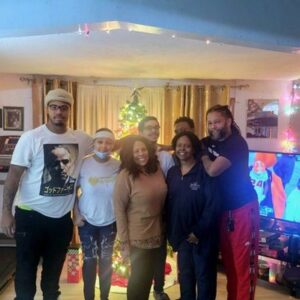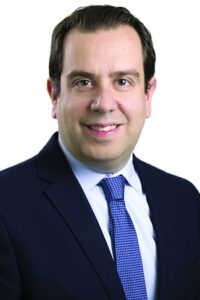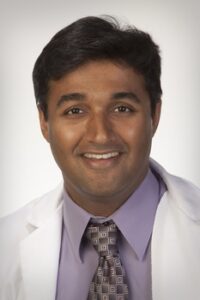 For nearly two decades, Buffalo nurse Denise Abbey devoted herself to caring for people with behavioral health challenges. An unexpected health crisis left her fighting for her life.
For nearly two decades, Buffalo nurse Denise Abbey devoted herself to caring for people with behavioral health challenges. An unexpected health crisis left her fighting for her life.
In 2020, she suffered a tear in the lining of her coronary artery. It caused a heart attack and the combination led to heart failure. Abbey struggled to breathe and completing routine tasks, such as getting the mail or standing at the sink to wash dishes, was increasingly difficult. She had a hard time keeping up with her two sons, Caleb and Matthew, and nephew, Jonathan, she was raising.
Reliance on family and friends was frustrating for the independent, single mother.
“My life was slowly slipping away,” Abbey said.
Teamwork between cardiologists in Buffalo and Rochester was a lifesaver. UR Medicine’s Strong Memorial Hospital heart transplant team gave her a new heart in June – the 300th since the program began in 2001.
A Long Decline
Abbey’s declining heart required constant care and several hospitalizations. Specialists at Great Lakes Cardiovascular, Buffalo General Hospital, and Strong Memorial worked together to strengthen her heart. She endured quadruple bypass, mitral valve surgery, implantation of a pacemaker and balloon pump, and numerous medications to manage her heart function.
But the damage was severe and effective therapies were dwindling.
“Ms. Abbey was in bad shape. She was unable to do just about everything,” said transplant cardiologist James Youssef, M.D. He is part of a collaborative heart failure program with Kaleida’s Buffalo General Hospital and Strong Memorial Hospital.

Transplant cardiologist James Youssef, M.D.
“She was essentially homebound because she was short of breath and extremely tired. We were working very hard to manage her symptoms and needed to take it to the next level.”
Youssef recommended care at Strong Memorial, which provides the latest therapies, including mechanical pumps and heart transplantation. He worked with transplant cardiologist Sabu Thomas, M.D., M.Sc., and colleagues to determine the next steps.
“Her heart function was very poor and transplantation was the best option, and we added her to the waiting list for a new heart,” Thomas said. Each year, approximately 3,000 heart transplants are performed across the country. “She was anxious to feel better again.”
She didn’t know how long she’d have to wait for a new heart. Abbey’s parents provided steady support while she was hospitalized. They stayed at Harbor House, a nearby home-away-from-home for families of patients in need of transplants or critical care.
“I am grateful they were with me and so close during that difficult time,” Abbey said.
Her prayers, and those of the Second Baptist Church congregation, were answered just nine days later. A matching heart became available on June 9, and the former Erie County Medical Center nurse’s second chance began.
“I can’t say enough about how wonderful it is right now,” said Abbey, who returned to her Cheektowaga home on June 27. “When it was tense and scary, my doctor talked with me about what’s next, and there was so much to digest. But I kept saying ‘whatever we have to do we’ll do. The other option is death and I wasn’t going to die.’”
Medical Milestone
Abbey, a graduate of Bennett High School, is the 300th person to receive a new heart at Strong Memorial Hospital. The life-saving, five-hour surgery was performed by cardiac transplant surgeons Igor Gosev, M.D., Ph.D., and Katherine Wood, M.D., and anesthesiologist Julie Wyrobek, M.D.
“This is a significant milestone for our patients who are living with new hearts, for Upstate New York and our heart team,” said Leway Chen, M.D., M.P.H., director and a founder of the Advanced Heart Failure program. The University of Rochester Medical Center, is home to Upstate New York’s only comprehensive heart failure and transplantation program.
“This is a tremendous accomplishment for our Cardiac Care team, which is supported by multidisciplinary staff from throughout the Medical Center,” said Spencer Rosero, M.D., interim chief of Cardiology. “The Advanced Heart Failure team provides the highest quality care and technology for our patients, many of whom travel several hours for this specialized care.”
Gift of Time

Transplant cardiologist Sabu Thomas, M.D.
Organ transplantation offers patients valuable time. “When patients share photos from family weddings, graduations, new babies and grandchildren, and dream vacations, we are honored to have contributed to those special moments,” said Himabindu Vidula, M.D., medical director of Heart Transplantation.
Some of the 299 other heart recipients include parents and grandparents, schoolteachers, marathon runners, firefighters, carpenters, professional and weekend-warrior athletes, lawyers and students. In addition to the large scars on their chests, they share deep gratitude to their donors for the Gift of Life.
“Organ donation saves lives and provides hope for our patients and their families,” said Gosev, interim surgical director of Heart Transplantation. There are 30 people on the waiting list for a new heart at Strong. They could wait a few months to more than a year for a match.
Cardiac Care Innovation
UR Medicine’s multidisciplinary Cardiac Care team has a long history of therapeutic and surgical therapy for hypertension, cholesterol, arrhythmia management, valve and aortic disorders, sarcoidosis and congenital disease, as well as cardiotoxicities from cancer therapy.
In 2001, cardiologists and cardiac surgeons began providing mechanical heart pumps and heart transplantation, transforming heart failure care for the region. The pumps, known as ventricular assist devices (VADs), are implantable devices that supplement or replace heart function. Originally designed to keep patients alive and as healthy as possible while they wait for a new heart, they are now used as long-term therapy for patients who are not eligible for transplant, or choose not to wait for one.
Strong Memorial has provided more than 800 pumps, and is one of the busiest centers in the nation. During the past two decades, surgeons worked closely with device makers to lead clinical studies of the evolving technology, providing cutting-edge devices to Rochester patients first.
Cardiac surgeons were the first in the country to perform a less invasive technique for implanting the device that reduces complications and improves outcomes.
The VAD team introduced a telemedicine program known as TeleVAD to bring care closer to home for patients who travel long distances. Based in Batavia and Hornell, VAD coordinators work in partnership satellite offices to provide routine follow-up care. “This is an innovation that expands access to specialized care for patients in rural areas,” Vidula said.
The heart program also offers a Cardiac Critical Care Transport Team composed of cardiac critical care nurses, respiratory therapists, perfusionists and physicians. The team uses a vehicle equipped with leading-edge technology to assist patients being rushed from outlying areas to the Medical Center for specialty care.
Become an Organ Donor
Organ transplantation is not possible without the generosity of donors. In the U.S., there are more than 116,000 people waiting, including about 8,600 in New York.
Those figures far exceed the number of organs donated each year, according to the Finger Lakes Donor Recovery Network, the organ procurement organization affiliated with the University of Rochester Medical Center, in partnership with other Upstate New York hospitals.
About 45 percent of eligible New Yorkers are registered organ donors. In the Finger Lakes region, 61 percent of eligible adults are enrolled in the registry, which is slightly below the national rate of 65 percent.
The shortage of organs means very sick patients must wait longer for life-saving surgeries. Sadly, 17 of them die each day before an organ becomes available.
Anyone age 16 and older can enroll in the New York State Donate Life Registry:


